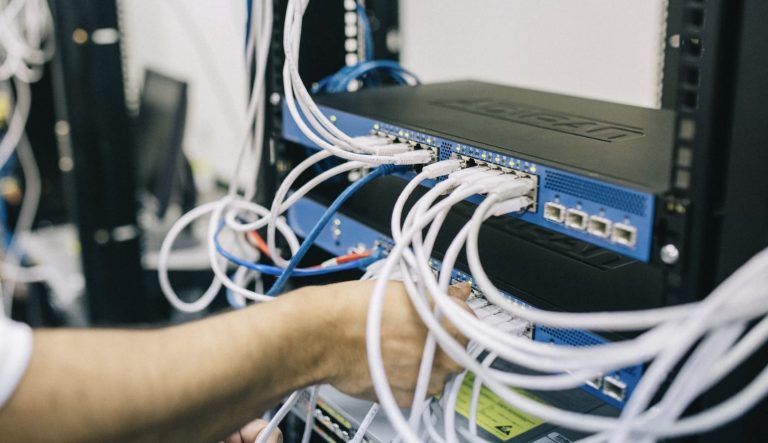A strong resume attached to your network administrator job application is quintessential. It all boils down to impressing your employer and helping them understand that you possess the necessary knowledge and abilities for the position. You’ll want to showcase your relevant education, employment history, and skills on your resume to demonstrate your understanding of computer networks and technology.
Story Stages
10 Network Admin Skills You Should Include In Your Resume
This article discusses the skills that can make you stand out as a network administrator to be successful in the workplace. Whether you are an expert or wish to add new skills under your belt, there’s something for everyone.
Network Security
Network security is arguably the most in-demand skill you can have as a network administrator. Given the recent increase in cyberattacks, companies are seeking expert technical professionals to secure their networks.
As a network security admin, you should know how to work with encryption standards, intrusion detection systems (IDSs), firewalls, and industry-level antivirus solutions. If you specialize in this domain, your day-to-day responsibility includes reporting all the security aspects of network operations.
Windows
Microsoft Windows is the most used computer operating system in the world. As a network administrator, you must know the OS inside out. You should be familiar with the system architecture, file systems, directory structure, networking utilities, and troubleshooting techniques like the back of your hand. Additionally, understanding how to strengthen Windows’ security can be rewarding.
Routers
A router enables a computer to connect to the internet and transfer data between other computers within a local network. This layer-3 device connects machines or hosts within a network using a particular software appliance type called firmware. As an admin, you need to understand the working of routers and learn embedded systems like OpenWrt and pfSense, which work with the router hardware.
Troubleshooting
Troubleshooting is a massive part of any network admin’s daily workflow. As a network analyst, you must be able to troubleshoot problems within the office network and devices effortlessly. This process of analyzing problems and fixing them requires exceptional technical expertise besides problem-solving abilities.
Proxies and VPN
Proxies and virtual private networks (VPNs) mask a device’s IP address on the internet. Companies opt for enterprise-grade proxy providers to prevent data theft and third-party traceability because a premium proxy delivers the result like no other. As a result, you should know how to configure, monitor, and troubleshoot proxy issues to anonymize a company’s online activities. Consider the best proxy services listed on https://bestproxyfinder.com/ to get an idea about the functions most in-demand.
LAN
A local area network (LAN) connects several computers within a small geographic area, such as an office or school building. As a network administrator, you should profoundly understand how data transmission over a LAN happens. Furthermore, understanding how to configure computers, switches, routers, and access points, among other network components, is mandatory for a senior network admin.
Linux
The Linux operating system fuels the most reliable enterprise servers on the internet. This OS is a modern and massively secure operating system. Today, millions use it worldwide. The ability to work with the Linux environment is a great skill that employers value. As a senior network administrator, you should be well-versed with the Linux command line to support Linux servers and clusters.
DNS
The domain name system (DNS) is a system to translate human-readable web addresses to IP addresses. A DNS server allows internet users to connect to various websites using the domain names such as google.com. So, you should have practical knowledge about DNS and how to maintain, support, coordinate design changes, and troubleshoot problems during an outage.
Network Infrastructure
Any organization requires a physical and logical structure to run business smoothly. This is a high-expense domain, as even maintaining the bare-essential facilities to run a network entails exceptional cost. A senior network admin must be comfortable auditing and keeping a network infrastructure in good condition so that the business operates efficiently and sustainably.
Hardware
Mastering computer hardware can be challenging as new standards replace old ones rather quickly. Any network analyst should have hands-on experience with devices like RAMs, motherboards, hard drives, printers, etc.
Key Takeaways
Network administrators’ responsibilities include implementing and maintaining IT network systems. A daily workflow will require a senior network admin to troubleshoot network issues, manage hardware inventory, diagnose outages, document, and report. With these 10 skills, you have all the technical expertise needed to get a network-related job in various industries, such as IT, telecom, finance, etc., with relative ease.
